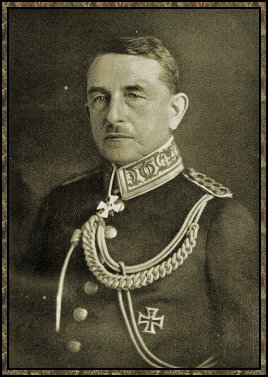 |
 Biographical Note: Dr. Schnee Dr. Heinrich Schnee was born in 1871 at Neuhaldensleben, near Magdeburg, and after passing through the Nordhausen Gymnasium studied at the universities of Heidelberg, Kiel, and Berlin, as well as the Oriental Seminary in Berlin, where he
While functioning in New Guinea, whose native inhabitants still lived in a condition of anarchy and cannibalism, it was his endeavour, by the appointment of native chiefs, to create orderly conditions and to suppress the barbarous customs and habits of the aborigines. He gave much attention to research into native customs and languages in the South Seas, publishing essays thereon in scientific journals, and he visited British, Dutch, and American colonies. In 1904 Dr. Schnee became Councillor of Legation in the Foreign Office (Colonial Department); in 1905 he was attached to the German Embassy in London as Colonial Councillor; in 1906 he became "Real" Councillor of Legation in the Colonial Department; in 1907, Director of the same; in 1911, Ministerial Director and head of the Political and Administrative Division of the Imperial Colonial Office (created in 1907); and from 1912 to 1919 he was Governor of German East Africa. As a Colonial Administrator Dr. Schnee at all times made it his aim to promote the elevation of the native population. He attached great importance to the cultivation of the closest personal contact with the natives, to which end he frequently travelled through the territories under his care, and acquired four native languages (Malay, the language of the inhabitants of the Gazelle Peninsula of New Pomerania, Samoan, and Suaheli). In German East Africa he introduced legislation for the protection of the native labourers against exploitation [48] and ill-treatment, and he also initiated far-going sanitary regulations on their behalf. Further, he did much for the stamping out of disease in man and beast; in particular he applied systematically Robert Koch's method of combating Sleeping Sickness, and established at Mpapua the Veterinary Institute for combating Rinderpest and other diseases to which domestic animals were subject. He likewise did much for the extension and improvement of native instruction, establishing schools for artisans, experimental stations from which seeds and plants were supplied free to the natives, and other institutions for the benefit of the latter. In German East Africa he followed Baron von Rechenberg, who is likewise known as a man who brought a humane spirit and outlook to the performance of his duties as Governor, and who had nearly completed six years of activity from which the interests of the natives greatly benefited. Dr. Schnee carried on the administration in the same spirit, and with a success evidenced by the fact that from 1906 to 1914 no rising occurred, nor did any occur during the war, an immunity which was not enjoyed by the adjacent colonies. In recognition of his merits in the sphere of colonial affairs, scientific and otherwise, Dr. Schnee in 1919 was awarded by the Prussian Academy of Sciences the Leibniz medal in gold, and two years later the University of Hamburg conferred upon him the degree of Doctor of Political Sciences, special mention being made in the diploma of the humane spirit in which he had filled the office of Colonial Governor. Dr. Schnee has made important contributions to the literature of colonization, including Pictures from the South Sea (1904), Our Colonies (1908), and German East Africa in the World War (1919), and he also edited the German Colonial Lexikon, in three volumes (1920). Since 1924 he has been a member of the Reichstag, belonging to the German People's Party, and in 1925 he was elected Senator of the German Academy in Munich. His wife is an English lady, formerly resident in New Zealand. Their home is at 11 Lietzenseeufer, Berlin-Charlottenburg.
|










